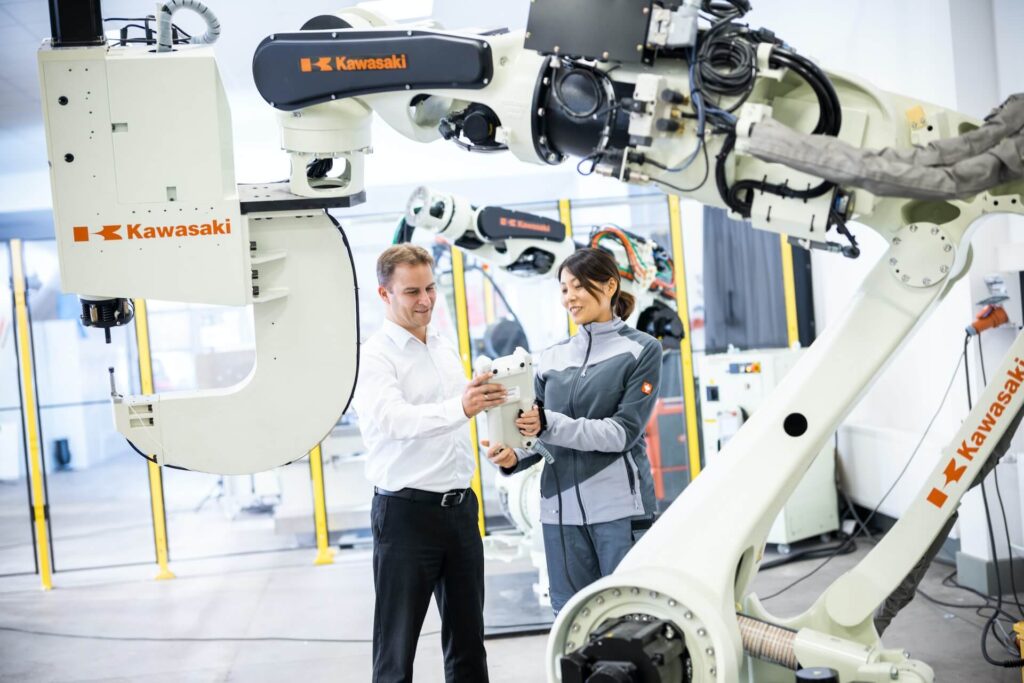Tecnologia
Robótica e Automação: A Revolução que Está Mudando o Mercado de Trabalho
A robótica e a automação estão transformando rapidamente o mercado de trabalho, trazendo consigo uma revolução em diversos setores da economia. Este artigo explora as tendências, os impactos e os desafios dessa transformação, bem como as oportunidades que ela pode proporcionar tanto para empresas quanto para profissionais. Vamos examinar como a robótica e a automação estão alterando as dinâmicas do mercado de trabalho e como podemos nos adaptar a essas mudanças.
Nos últimos anos, temos testemunhado avanços significativos no campo da robótica e da automação. Essas tecnologias estão se tornando cada vez mais sofisticadas e capazes de realizar tarefas que antes eram exclusivamente humanas. À medida que a robótica e a automação se expandem, o mercado de trabalho passa por uma grande transformação, impactando diferentes setores e profissões.
O Impacto da Robótica e da Automação no Mercado de Trabalho
1. Automação industrial: Aumento da eficiência e produtividade
A robótica e a automação têm desempenhado um papel crucial na indústria, possibilitando a automação de processos de fabricação e montagem. Isso resulta em um aumento significativo da eficiência e produtividade, reduzindo erros e tempo de produção.
2. Setor de serviços: Mudanças na prestação de serviços
A automação também está impactando o setor de serviços, com o surgimento de chatbots, assistentes virtuais e sistemas automatizados de atendimento ao cliente. Essas tecnologias permitem uma interação mais rápida e eficiente com os consumidores, alterando a forma como os serviços são prestados.
3. Transporte e logística: O advento dos veículos autônomos
A robótica e a automação estão revolucionando o setor de transporte e logística com o desenvolvimento de veículos autônomos. Caminhões, drones e até mesmo navios autônomos estão se tornando uma realidade, reduzindo os custos de transporte e aumentando a velocidade das entregas.
Desafios e Oportunidades
1. Requalificação profissional: Adaptação às novas demandas
A transformação trazida exige uma requalificação constante dos profissionais. Habilidades como pensamento crítico, resolução de problemas e criatividade tornam-se cada vez mais valorizadas. É necessário investir em educação e treinamento para acompanhar as demandas do mercado.
2. Novas oportunidades de emprego: A criação de profissões emergentes
Embora algumas profissões possam ser substituídas pela automação, novas oportunidades de emprego também surgem nesse novo cenário. Profissões relacionadas à programação, análise de dados, inteligência artificial e manutenção de robôs estão em alta demanda.
Implementação Gradual da Robótica e Automação
Embora estejam transformando o mercado de trabalho, é importante destacar que sua implementação ocorre de forma gradual. Muitas empresas adotam essas tecnologias de forma progressiva, integrando-as aos processos existentes e capacitando seus funcionários para trabalhar em colaboração com as máquinas.
Essa abordagem gradual permite uma transição mais suave e evita impactos drásticos nas estruturas organizacionais e nas carreiras dos profissionais. Além disso, a cooperação entre humanos e máquinas é cada vez mais valorizada, com robôs atuando como assistentes e complementando as habilidades dos trabalhadores.
Ética e Desafios Sociais da Robótica e Automação
À medida que avançam, surgem questões éticas e desafios sociais a serem enfrentados. É fundamental garantir que essas tecnologias sejam utilizadas de forma responsável e justa, levando em consideração os impactos sobre os trabalhadores e a sociedade como um todo.
A preocupação com o desemprego causado pela automação é uma das principais questões discutidas. No entanto, é importante lembrar que, ao mesmo tempo em que algumas ocupações podem desaparecer, outras serão criadas. A requalificação e a adaptação dos profissionais serão essenciais para aproveitar as novas oportunidades.
Outro desafio é garantir que a robótica e a automação sejam acessíveis a todos, evitando a criação de disparidades sociais. É necessário estabelecer políticas e regulamentações adequadas para orientar o desenvolvimento e o uso dessas tecnologias, garantindo que seus benefícios sejam compartilhados de forma equitativa.
Conclusão
A robótica e a automação estão promovendo uma revolução no mercado de trabalho, impactando setores e profissões de maneira significativa. Embora essas transformações possam trazer desafios, é importante enxergá-las como oportunidades de crescimento e desenvolvimento.
A adaptação e a requalificação são essenciais para acompanhar as mudanças e aproveitar as novas possibilidades oferecidas pela robótica e automação. As empresas devem se preparar para implementar essas tecnologias de forma gradual e consciente, promovendo a colaboração entre humanos e máquinas.
A sociedade como um todo também deve estar atenta aos aspectos éticos e aos desafios sociais que surgem com a robótica e a automação. A garantia de uma implementação responsável e inclusiva é fundamental para que todos possam se beneficiar dessa revolução tecnológica.
Perguntas Frequentes (FAQs)
- A automação substituirá todos os empregos?Não, embora a automação possa substituir algumas tarefas repetitivas, muitas profissões exigem habilidades humanas únicas, como empatia, criatividade e tomada de decisões complexas.
- Quais são as principais habilidades necessárias no mercado de trabalho automatizado?Habilidades como pensamento crítico, resolução de problemas, criatividade e adaptabilidade são cada vez mais valorizadas no mercado de trabalho automatizado.
- Como me preparar para as mudanças trazidas pela robótica e automação?Investir em educação, aprendizado contínuo e desenvolvimento de habilidades relevantes é fundamental para se adaptar às mudanças trazidas pela robótica e automação.
- Quais setores serão mais impactados pela robótica e automação?Setores como indústria, serviços, transporte e logística serão fortemente impactados pela robótica e automação.
- A robótica e a automação podem trazer benefícios para as empresas?Sim, a robótica e a automação podem trazer benefícios significativos para as empresas, como aumento da eficiência, redução de custos e melhoria da qualidade de produtos e serviços.

